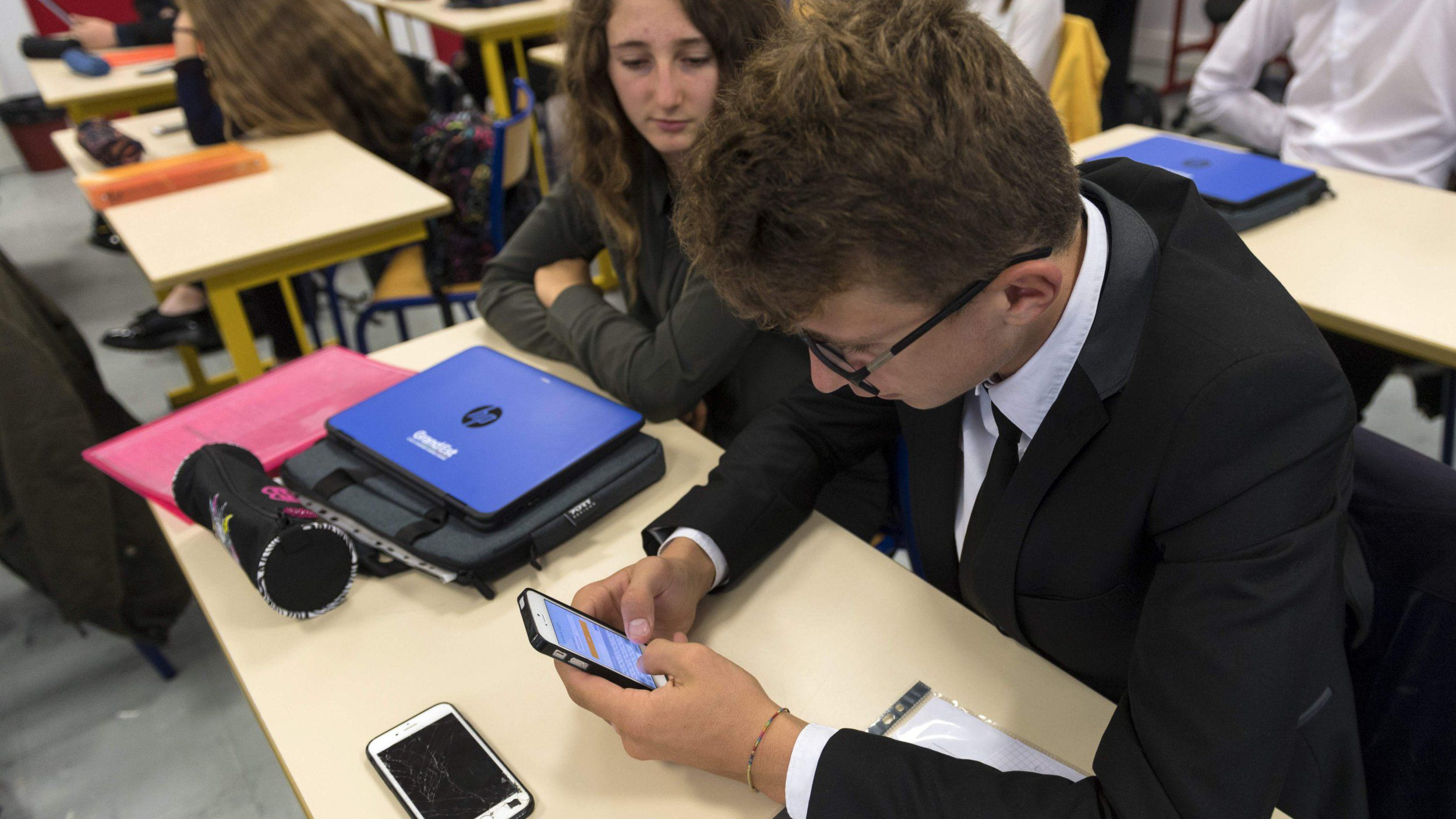South Korea has officially passed legislation banning the use of mobile phones and smart devices during school hours, making it one of the few countries to enshrine such a rule in law.
The bill, approved on Wednesday with 115 votes in favour out of 163 lawmakers present, is set to take effect starting in March 2026.
This move is part of a growing global effort to address smartphone addiction among children and teenagers, amid mounting evidence of its negative impact on academic performance, mental health, and social development.
France and Finland have implemented partial bans, typically targeting younger students.
Italy, the Netherlands, and China have enacted more comprehensive restrictions.
Australia has also implemented state-level bans, with Victoria and New South Wales introducing policies that prohibit phone use during school hours across all grade levels.

Australia also recently widened its pioneering ban on social media for teenagers.
A ban on mobile phones in Dutch schools has improved focus among students, a study found in July.
Law aims to curb distraction and overuse
The legislation in South Korea, backed by both ruling and opposition parties, grants teachers the authority to restrict phone use not only during class but also elsewhere on school premises.
Exceptions will be allowed for students with disabilities who rely on assistive technology, as well as for emergencies and educational purposes.
“There is significant scientific and medical proof that smartphone addiction has extremely harmful effects on students’ brain development and emotional growth,” Cho Jung-hun, the opposition lawmaker who introduced the bill, was quoted as saying by BBC.
He cited the growing number of international precedents as a motivating factor.
Nearly 43% of South Koreans aged 10-19 were classified as overly dependent on smartphones in a 2024 government survey, almost double the national average.
Surveys show South Korea is among the world's most digitally connected countries, with 99% of South Koreans online and 98% owning a smartphone, according to the US-based Pew Research Center, the highest rate among the 27 countries it examined in 2022 and 2023.
More than a third of teens also report struggling to manage their time on social media.

Divided views
Supporters of the bill, including many parents and teachers, argue that the regulation is necessary.
"When they go to school, they're supposed to study, but also build friendships and take part in various activities. Yet they're unable to focus on those things," said Choi Eun-young, a mother of a 14-year-old student in Seoul.
She worries that constant screen time is interfering with her child's ability to socialise and learn.
Some parents, like Kim Sun, also express concern about cyberbullying, noting that children “throw around unthinkably harsh insults” on social media platforms.
Teachers are somewhat split.
The conservative Korean Federation of Teachers' Association welcomed the law, noting that it provides “a much firmer legal basis” to address classroom disruptions.
An internal survey cited by the group found that nearly 70% of teachers had experienced disruptions due to student phone use, with some even reporting verbal or physical aggression when enforcing existing restrictions.
However, the more progressive Korean Teachers and Educational Workers’ Union did not take an official stance.
Some of its members believe the law may infringe on students' rights and overlook deeper issues like academic pressure and social isolation.
Critics question effectiveness
Not all students are convinced that banning phones during class will solve the problem.
"Rather than simply taking phones away, I think the first step should be teaching students what they can do without them," said Seo Min-joon, an 18-year-old high schooler critical of the law.
He argues that banning phones during lessons won’t reduce screen time outside of school hours and calls for more education on responsible technology use.
Another student, aged 13, expressed that he doesn’t have time to be addicted to his phone due to a gruelling schedule packed with tutoring and homework.




















